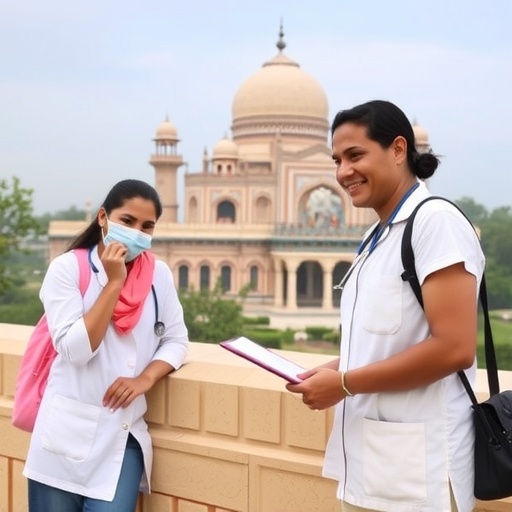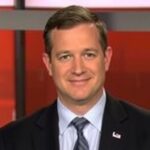In a bold move to bridge wilderness leadership with frontline healthcare, the National Outdoor Leadership School (NOLS) has announced the launch of its groundbreaking Global Healthcare Semester in India, set to begin in February 2026. This immersive program promises to equip aspiring medical professionals with hands-on skills in one of the world’s most dynamic and challenging healthcare environments, blending rigorous outdoor expeditions with intensive clinical training.
- Blending Wilderness Survival with Lifesaving Skills: The Core of NOLS‘s New Initiative
- India as the Ultimate Training Ground: Navigating Diverse Healthcare Landscapes
- Real Voices from the Field: Student and Expert Testimonials on Transformative Training
- Strategic Partnerships Fueling Success: Collaborations Across Borders
- Shaping Tomorrow’s Medics: Long-Term Ripples of NOLS’s India Venture
Blending Wilderness Survival with Lifesaving Skills: The Core of NOLS‘s New Initiative
The Global Healthcare Semester represents a seismic shift for NOLS, an institution renowned for its wilderness-based leadership programs since 1965. Traditionally focused on outdoor education, NOLS is now venturing into specialized healthcare training, targeting students who seek to become resilient leaders in global medicine. The semester, priced at approximately $28,500 including tuition, gear, and accommodations, will span 90 days and accommodate up to 16 participants per cohort.
At its heart, the program integrates NOLS‘s signature expedition-style learning with medical simulations. Participants will trek through India’s rugged terrains—from the misty hills of the Himalayas to the arid deserts of Rajasthan—while practicing emergency response techniques. Imagine diagnosing a simulated heatstroke victim under the scorching sun or stabilizing a mock trauma patient during a monsoon hike. “This isn’t just training; it’s transformation,” says Dr. Elena Ramirez, NOLS‘s Director of Global Health Initiatives. “Our students will learn to thrive where medicine meets the unknown.”
Statistics underscore the need for such innovative approaches. According to the World Health Organization (WHO), over 70% of global healthcare workers report inadequate preparation for field emergencies, a gap that NOLS‘s program aims to close. In India, where rural healthcare access remains a pressing issue— with only 0.7 doctors per 1,000 people compared to the global average of 1.6—the semester will expose students to real-world disparities, fostering empathy and adaptability.
The curriculum is divided into three phases: foundational wilderness medicine, cultural immersion in urban clinics, and capstone expeditions. Students will earn certifications in Wilderness First Responder (WFR) and Advanced Wilderness Life Support (AWLS), endorsed by the Wilderness Medical Society. Early enrollment data shows strong interest, with applications already surpassing 200 from universities across the U.S., Europe, and Asia.
India as the Ultimate Training Ground: Navigating Diverse Healthcare Landscapes
Why India? The choice isn’t arbitrary; it’s strategic. As the world’s most populous nation, India offers a microcosm of global health challenges, from infectious disease outbreaks to natural disasters. The Global Healthcare Semester will be based in multiple locations, starting in Delhi for urban hospital rotations and extending to rural outposts in Uttarakhand and Kerala. This multi-site approach ensures participants encounter everything from high-tech facilities in Mumbai to community health centers in remote villages.
India‘s healthcare system, valued at $372 billion in 2023 and projected to reach $638 billion by 2025 per PwC reports, is a powerhouse of innovation yet plagued by inequities. Participants will shadow Ayurvedic practitioners alongside allopathic doctors, gaining insights into integrative medicine. A surprising angle: the program incorporates yoga and traditional healing as stress-management tools for medics, drawing on India‘s ancient wellness heritage to combat burnout—a issue affecting 50% of healthcare workers globally, per a 2022 Lancet study.
Logistically, NOLS has partnered with local guides and translators to navigate cultural nuances. “India teaches humility in healing,” notes Rajesh Kumar, a veteran Indian paramedic collaborating with NOLS. “Our streets and mountains don’t forgive mistakes; neither should training.” Safety protocols include satellite communication and evacuation plans, ensuring the program’s adventurous spirit doesn’t compromise well-being.
Environmental integration is key. Expeditions will highlight climate change’s impact on health, such as vector-borne diseases rising in the Himalayas due to warming temperatures. Students might analyze waterborne illness risks during river crossings, applying epidemiological tools in real time. This holistic view positions the Global Healthcare Semester as more than medical school—it’s a call to action for planetary health.
Real Voices from the Field: Student and Expert Testimonials on Transformative Training
To bring the Global Healthcare Semester to life, NOLS has already piloted elements through alumni previews. Sarah Thompson, a 24-year-old nursing student from Colorado, participated in a scouting trip last year. “I treated a simulated fracture on a cliffside in the Aravalli Hills—adrenalin-pumping stuff,” she shares. “Back home, textbooks feel flat; this semester will make me a doctor who leads under pressure.”
Experts are equally enthusiastic. Dr. Amit Patel, dean of a prominent Indian medical college, praises the initiative: “NOLS‘s outdoor ethos fills a void in traditional curricula, where 80% of training is classroom-bound. In India, where disasters like floods displace millions annually, we need medics who can improvise.” His institution is among several forging ties with NOLS, potentially offering credit transfers to boost accessibility.
Broader context reveals NOLS‘s evolution. With over 50,000 alumni worldwide, the school has trained leaders for NASA and the Peace Corps. The healthcare pivot responds to post-pandemic demands; a 2023 survey by the American Medical Association found 62% of residents craving expeditionary skills. Quotes from NOLS CEO Drew Leemon emphasize inclusivity: “We’re opening doors for underrepresented voices in medicine, with scholarships covering 30% of spots for students from low-income backgrounds.”
Challenges aren’t ignored. Ethical considerations, like respecting India‘s diverse castes and religions during patient interactions, will be covered in pre-departure modules. Mental health support, including debrief sessions, addresses the emotional toll of immersive learning. These testimonials paint a vivid picture: the semester isn’t just education; it’s a rite of passage forging unbreakable resilience.
Strategic Partnerships Fueling Success: Collaborations Across Borders
The Global Healthcare Semester thrives on alliances. NOLS has teamed up with the Indian Red Cross Society for disaster simulation drills, leveraging their expertise in handling events like the 2023 Uttarakhand floods that affected 10,000 lives. Additionally, tie-ups with AIIMS (All India Institute of Medical Sciences) provide access to cutting-edge labs, where students will explore telemedicine—vital in India, where 65% of the population lives rurally.
International flavor comes from collaborators like the Wilderness Medicine Training Center in the U.S., ensuring global standards. Funding partly stems from grants by the Bill & Melinda Gates Foundation, focused on equitable health education. “These partnerships amplify impact,” says NOLS program coordinator Lila Chen. “We’re not outsiders; we’re building a network for lifelong learning.”
On the ground, local NGOs like SEWA (Self-Employed Women’s Association) will host community health workshops, allowing students to address women’s health issues in underserved areas. This collaborative model not only enriches the curriculum but also creates job pipelines; graduates could return as volunteers, sustaining NOLS‘s footprint in India.
Sustainability is woven in—expeditions use eco-friendly gear, and cultural exchanges promote mutual respect. With India‘s government pushing ‘Make in India’ for medical devices, students might even prototype low-cost tools during innovation sessions, bridging academia and industry.
Shaping Tomorrow’s Medics: Long-Term Ripples of NOLS’s India Venture
Looking ahead, the Global Healthcare Semester could redefine medical education globally. By 2030, the WHO predicts a shortage of 10 million health workers; programs like this cultivate versatile professionals ready for crises, from pandemics to climate refugees. NOLS envisions scaling to other countries, with India as the flagship.
Alumni networks will drive change—imagine a cohort launching NGOs or influencing policy. Early projections suggest 90% of participants pursuing international careers, per NOLS internal models. For India, it means bolstered local capacity; joint research could tackle endemic issues like tuberculosis, which claims 1.3 million lives yearly.
Enrollment opens in fall 2025, with virtual info sessions starting soon. As NOLS steps into this era, one thing is clear: the Global Healthcare Semester isn’t just training leaders—it’s igniting a movement where medicine meets adventure, promising healthier worlds one expedition at a time.








